[ad_1]
Nintendo obviously isn’t going to put The Legend of Zelda: Tears of the Kingdom on the PlayStation 4 or PlayStation 5, leaving those without a Nintendo Switch unable to play one of the biggest games of 2023. But there are still a handful of PS4 and PS5 games like Tears of the Kingdom, as well as other Zelda titles. Tears of the Kingdom and Breath of the Wild are big games with many facets, and these games touch on some or a handful of those elements.

Immortals Fenyx Rising
Immortals Fenyx Rising is the game that most shamelessly borrows components from Breath of the Wild. It takes place in a cartoony open-world where the protagonist can glide based on how big their upgradeable stamina bar is. There are also puzzles-specific areas around the map that are very similar to Breath of the Wild’s shrines that call on players to use their abilities to reach the end. It’s a lot like the popular Switch game because of all this, albeit aimed at a younger audience and bathed in Greek mythology.
None of it is as deep as Breath of the Wild, and it doesn’t understand that the sense of discovery was so key to that title — it is a Ubisoft game full of Ubisoft-like marks on the map — but it’s somewhat close in some regards to warrant a look for those who want a similar experience on different hardware. The puzzles aren’t usually tough or full of multiple solutions, yet its A New God expansion has some genuinely creative puzzles that easily best anything in the core campaign. It may be a mild version of that winning formula overall, but it’s still got a little bit of that magic, which is why it lands on our list of the best PS4 and PS5 games like Zelda.
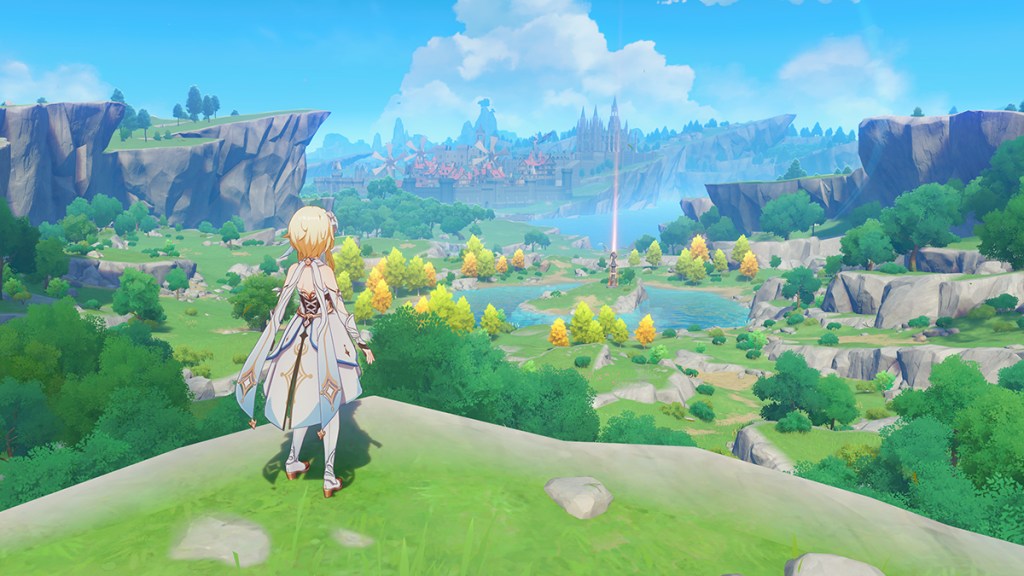
Genshin Impact
Genshin Impact is another title that clearly takes more than a little inspiration from Breath of the Wild. Players can once again glide around in a stylized world and upgrade their stamina, but Genshin Impact is much more of an RPG that also utilizes those features and Breath of the Wild’s elemental interactions. These RPG systems allow it to stick out and make its combat much more explosive, which separates it from other titles on our list of PS4 and PS5 games like Zelda.
Developer miHoYo’s support of this game is still ongoing, too, which makes sense because it’s a free-to-play game. Those who don’t pay will have to grind a bit, but there’s still plenty to do and unlock in the game, especially three years after launch.
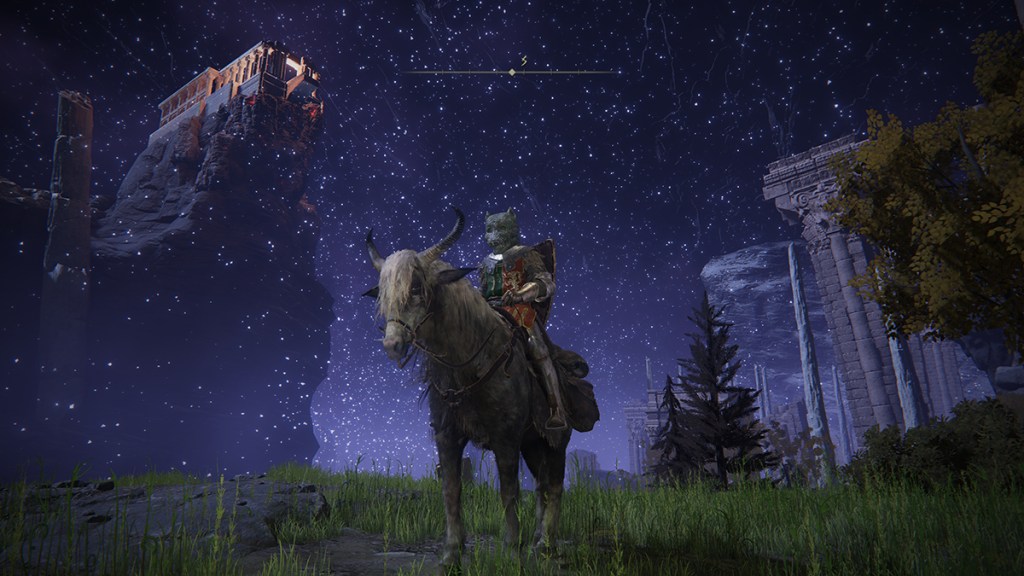
Elden Ring
Elden Ring is one of the only big games to come out after Breath of the Wild that understood how important natural exploration was to that game. This acclaimed RPG may have all the acclaimed qualities of FromSoftware’s other games like huge bosses and deliberate combat, but it also gives players a giant world full of secrets that doesn’t lead players by the nose.
It’s inevitable that players will stumble across secret dungeons, massive hidden areas, and optional bosses as they wander around its enormous maps and that feeling is always spectacular, even if it results in a quick death. Elden Ring can be obtuse at times, but it’s also exhilarating in a way few games are, which is why it’s a lock on our list of the best PS4 and PS5 games like Zelda.
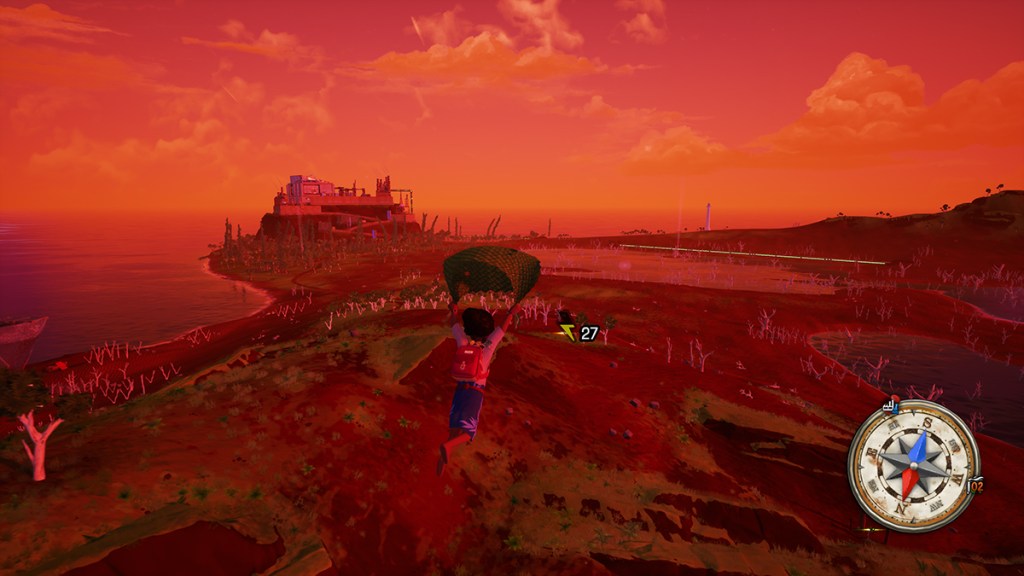
Tchia
Tchia more loosely wears its Zelda influences on its tunic or, in this case, island dress. Tchia is set on a set of islands inspired by New Caledonia and lets players glide and roam around, picking up collectibles and special stamina-raising fruit along the way. Tchia’s main mechanic is being able to jump into the bodies of the local wildlife (and inanimate objects), so players can fly (and poop) like a bird or tumble chaotically like a rock. It almost never calls on players to use these abilities in clever ways to solve puzzles, and its open world is more on the empty side, but Tchia offers up a tropical, less intense take on the new Zelda formula.
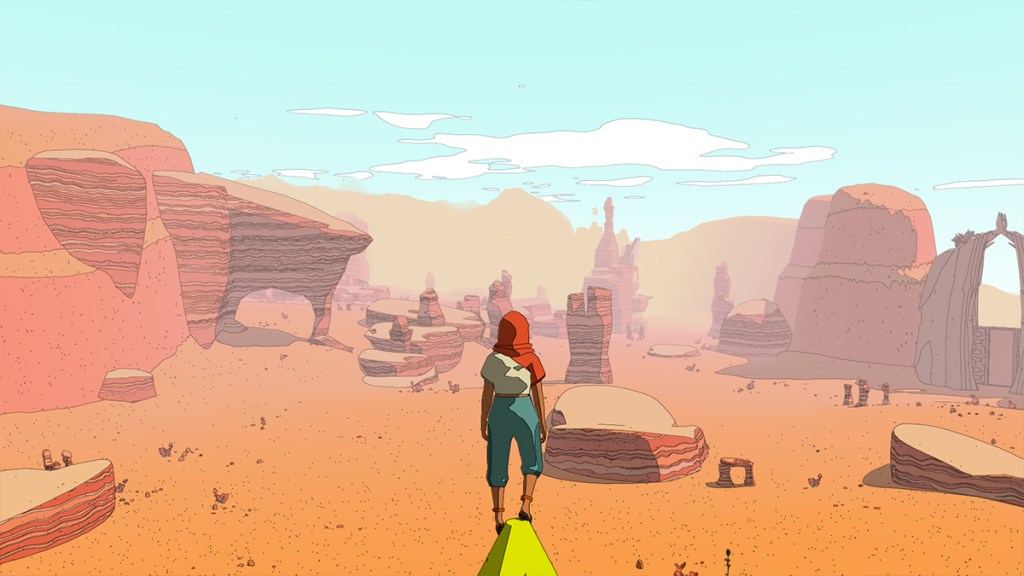
Sable
Sable almost purely focuses on waypoint-free exploration. There are minor puzzles scattered about its desert map, but Sable is built around zooming to new areas on the game’s customizable hoverbike, poking around, and the satisfaction that comes with doing all of that without any aggressive handholding. There’s no combat, and it’s a very tranquil experience, so that strips out a lot of the potential mechanics that separate it from something like Breath of the Wild and Tears of the Kingdom. However, its vivid art style and curiosity-driven traversal are the overlapping parts on the Venn diagram that make Sable special.
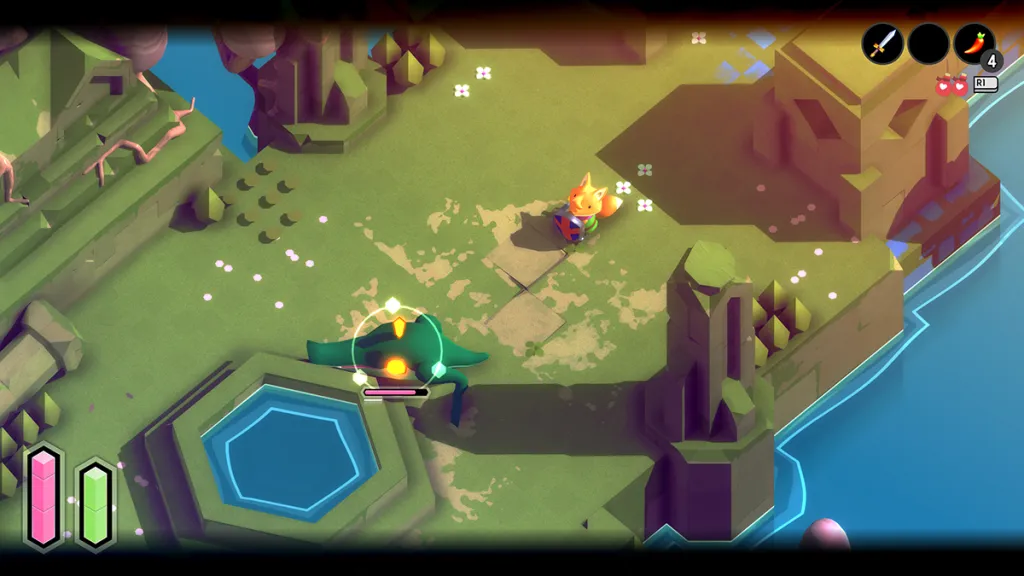
Tunic
Tunic’s very name evokes The Legend of Zelda, and even though it doesn’t specifically call to Breath of the Wild, it does call to its roots as a Zelda game. Breath of the Wild is different from those that came before, yet it still spiritually employs the franchise’s core tenets, which is why it makes our list of PS5 games like Zelda.
Tunic is a mysterious isometric action game where players can attack, dodge, block, and shoot to overcome giant enemies and dungeons. And while it seems like a typical retro title, it has a suite of secrets that are reminiscent of 2011’s Fez. It plays with conventions and contains a mystery that slowly unravels over time. Tunic lets players figure things out, which is much like the older Zelda games Breath of the Wild and Tears of the Kingdom also pull from.
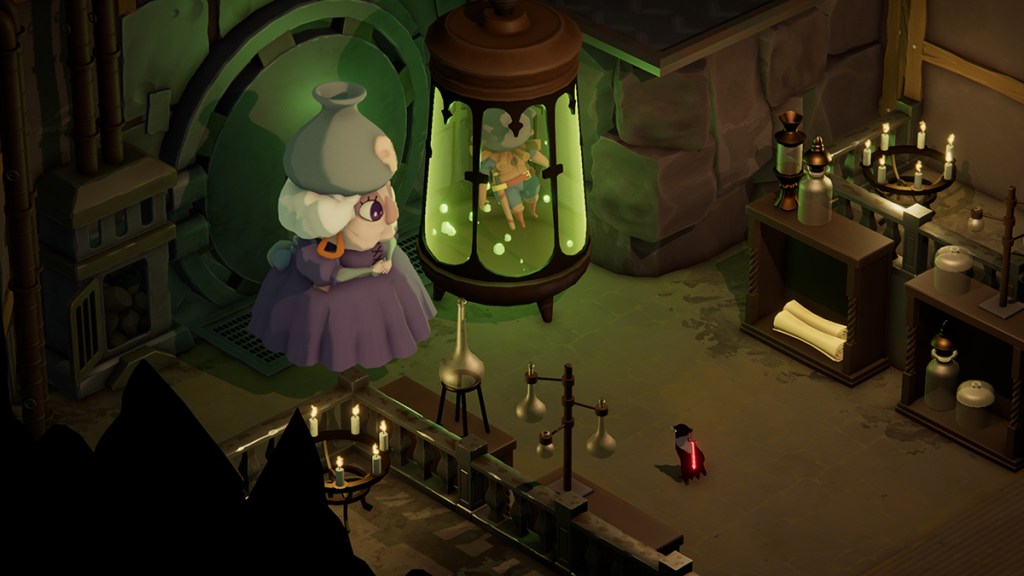
Death’s Door
Death’s Door is cut from a similar cloth as Tunic, as it isn’t a direct Breath of the Wild-like game, but it is more like the games at the center of Breath of the Wild and Tears of Kingdom’s essence. This isometric action RPG has weighty combat and a few upgradeable abilities that give players more powers and tools to traverse the world. Its unique art style also rides that line between charming and macabre, which is something the Zelda series occasionally does quite well. Death’s Door’s dungeons are rather straightforward and lack true eureka moments the Zelda series is known for, but it’s still an intriguing experience that blends a few ideas well enough to feel original.

The Swords of Ditto
The Sword of Ditto looks like another cutesy title that pulls from Link’s past, and while it does do exactly that with its isometric dungeon crawling, it also shares some commonalities with Breath of the Wild. Players can tackle the final boss at any time, but they can make that battle easier by leveling up and fighting other bosses in a way not too dissimilar from how players can challenge Calamity Ganon right out of the gate in Breath of the Wild. It’s a welcome amount of freedom that puts the player more in charge of their destiny.
The Swords of Ditto also uses its roguelite nature to ensure runs are different since its levels are procedurally generated. These roots also meant it wasn’t received too fondly upon release, but the Mormo’s Curse update overhauled the game to make it more forgiving, as many found its death mechanic to be too punishing. That patch also welcomed in new enemies and stages and even improved the endgame by adding more to do.
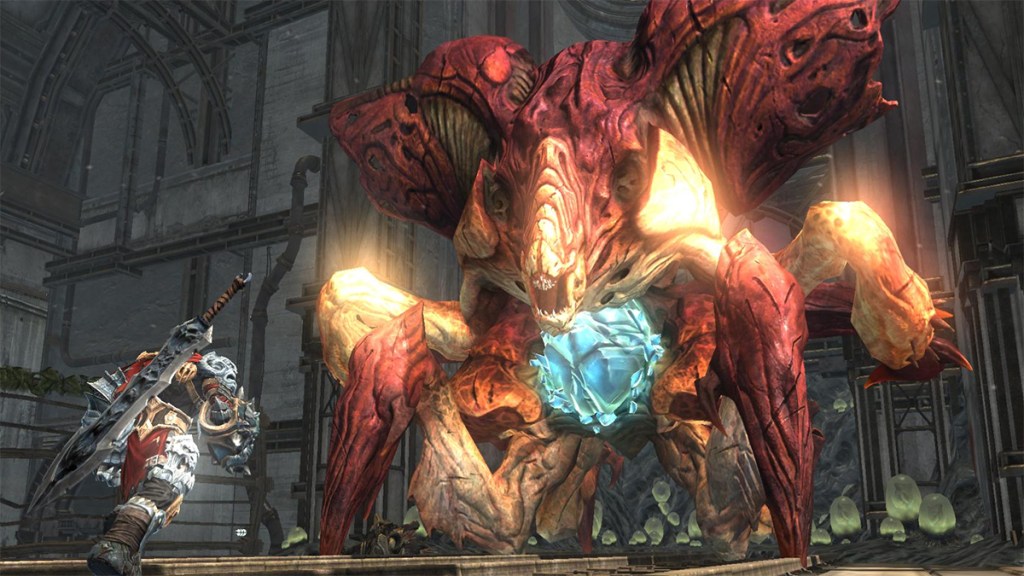
Darksiders Warmastered
Darksiders is far more of a traditional Zelda title than Breath of the Wild, and it does not hide how much it loves Ocarina of Time. It’s got equivalents to various parts of that Nintendo 64 game like its hookshot, boomerang, and Link’s horse Epona, but drenches them in darkness and dramatically ratchets up the edginess. Protagonist War’s horse isn’t sweet and innocent; he’s covered with dark black fur, mysterious runes, and, naturally, roaring flames.
And while it is derivative, it’s all done well enough to excuse its relative lack of originality. The puzzle-ridden dungeons are laid out well and reward those who use its tools intelligently. Breath of the Wild was criticized for not having many dungeons, but Darksiders has plenty to compensate and will appeal to those with that common critique. While its sequel chased Devil May Cry and Diablo, and the third game was a misguided soulslike that mangled the Dark Souls blueprint, the purity of the original is what makes it stand out even though it is also clearly inspired by a particular game.

Ittle Dew 2
Ittle Dew 2 is another in a long list of isometric RPGs that are reminiscent of older Zelda games that also incorporate some ingredients from Breath of the Wild and Tears of the Kingdom. Players can do the dungeons in any order, which yields a sense of freedom many love about the newer Zelda titles. This sequel also had a greater emphasis on combat, which some derided as a step back since it deemphasized the puzzles the series is known for.
However, it’s going to be nearly impossible to play on PlayStation 4 because it was delisted from the PlayStation Store in September 2019 after a dispute with the game’s publisher, Nicalis. Developer Ludosity eventually re-released the game on PC and Nintendo Switch as Ittle Dew 2+, but that updated port never made its way back onto PS4 (or Xbox One, for that matter). Since there was no physical release on PS4, there’s no chance to legitimately play it on that system. The first game also never came out on PlayStation systems, either.
[ad_2]
Source link




















